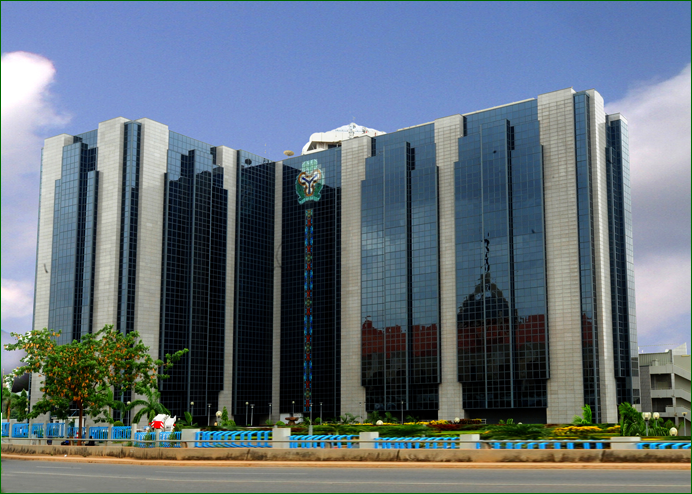Daily Watch – CBN settles $867 million in October FX requests, AIICO does victory lap
25th November 2016

- The CBN has given access to about 7,792 requests for foreign exchange valued at over $867 million to manufacturers and other strategic actors in the Nigerian economy. According to a statement by the regulator’s spokesman, Isaac Okorafor, the access was in continuation of the resolve to ease foreign exchange pressure on manufacturers. The access, Okoroafor noted, was given through inter-bank window to enable manufacturers and strategic actors to source for vital raw materials and spare parts for their respective industries. He added that the figure was derived from a summary of the Forex Utilisation for the month of October. The summary indicated that the raw materials sector received the highest allotment, getting access to foreign exchange valued at $355.7 million representing 40.99 percent of the total value. He noted that “statistics from the CBN in Abuja showed that manufacturing and petroleum industries got access to $91.2 million and $150.8 million respectively. “Companies and other interests in the agriculture sector got access to $13.7 million for the period, while entities in the aviation sector received $10.3 million.” The director stated that finished goods and others got allotments of $43.8 million and $10.7 million respectively. Invisibles, comprising of school fees, students’ upkeep and medicals, among others, received $191.3 million, representing 22.05 per cent of the figure, he stated.
- Nigeria’s agro product exporters could see their goods banned from Europe over the Federal Government’s reluctance to sign the Economic Partnership Agreement trade deal proposed by the European Union. The country’s reluctance could lead to termination of the temporary free trade access being enjoyed by agro product exporters. “The EU is no more comfortable with Nigeria on the EPA. This is exactly two years after negotiations, but what we have seen is more of opposition. The EU will likely block some of Nigeria’s agro products, especially cocoa and grains, maybe in 2017,” BusinessDay quotes a source as saying. John Clarke, director of the EU’s International and Bilateral Relations said at an investment forum organised by the Lagos Chamber of Commerce and Industry on November 9 that if Nigeria does not ratify the EPA, the country’s exports would be subject to high WTO standard tariffs. The EPA is a free trade agreement between the 15 ECOWAS countries and the EU, seeking to enable West African countries to have tariff-free access the European market and vice versa. Europe is committing 6.5 billion euros every five years, beginning from 2015 to 2019, including during the 20-year transition period that will end in 2035. The EU will open its market completely from day one, while West Africa will remove import tariffs gradually over a 20-year transition period once the deal is ratified.
- After a month-long vacancy, Lagos Governor Akinwunmi Ambode, on Wednesday redeployed Akinyemi Ashade, economic planning and budget commissioner to the finance ministry. With this, Ashade becomes Lagos’ eighth finance commissioner since 1999. His redeployment followed the October 19 sack of Mustapha Akinkunmi, the erstwhile finance commissioner alongside Ekundayo Mobereola and Folorunsho Folarin-Coker, commissioners for transportation and tourism and culture, respectively. Ashade, who is to resume his new portfolio immediately, will, however, continue to run the affairs of his current ministry pending a new cabinet reshuffle. He would be expected to oversee the finances of Nigeria’s biggest economy state with a GDP of $131 billion dollars. In addition to its population, estimated at 20 million, Lagos stands ahead of other 35 states of the federation, with incremental internal revenue generation growing from ₦600 million in 1999 to between ₦23 and ₦24 billion monthly presently. Ashade until his appointment into the Ambode’s cabinet in 2015 was a partner at KPMG Professional Services. He had over 16 years of professional experience with KPMG Nigeria and extensive skills in the financial services industry, project and quality assurance management and public-private partnership execution.
- The FCMB Group has reported a profit before tax of ₦14.2 billion for the nine months ended September 30, 2016, representing an increase of 453% from ₦2.563 billion recorded same period of 2015. FCMB Group, the holding firm with subsidiaries including First City Monument Bank (FCMB), FCMB Capital Markets, CSL Stockbrokers and CSL Trustees, attributed the current development partially to its soundness of ratios, steady buffers against the subsisting adverse operating environment, in addition to the bank’s sustained revenue momentum combined with its cost optimisation programme. The Managing Director of FCMB Group, Peter Obaseki, commenting said, “The audited nine months’ results for the period ended September 2016, reflects our focus on key soundness ratios and the need to maintain buffers against a sustained adverse operating environment.”
- AIICO Insurance’s underwriting profit surged 116.12 percent amid rising claims expenses as the company continues to operate in an adverse operating environment. Underwriting profit for the nine months through September was ₦5.36 billion as against ₦2.48 billion, the previous year. Net premium income (NPI) increased by 68.88 percent to ₦16.77 billion amid an 85.12 percent decline in unearned premium to ₦1.76 billion. While AIICO’s premium income and underwriting profit are spiking, claims to policyholders are rising on the back of high pay-out on third-party motor vehicle insurance. The Nigerian insurer claims expenses are up 83.98 percent to ₦10.80 billion, while claims ratio moved to 64.46 percent in the period under review as against 59.93 percent the previous year. Insurers in Africa’s most populous nation are paying more claims to policyholders due to rising inflation because insurers have to pay according to the adjusted figures, and prices have gone up. Insurance as a share of the country’s GDP contracted 1.22 percent in Q3 from 3.72 percent in Q2, according to NBS data.